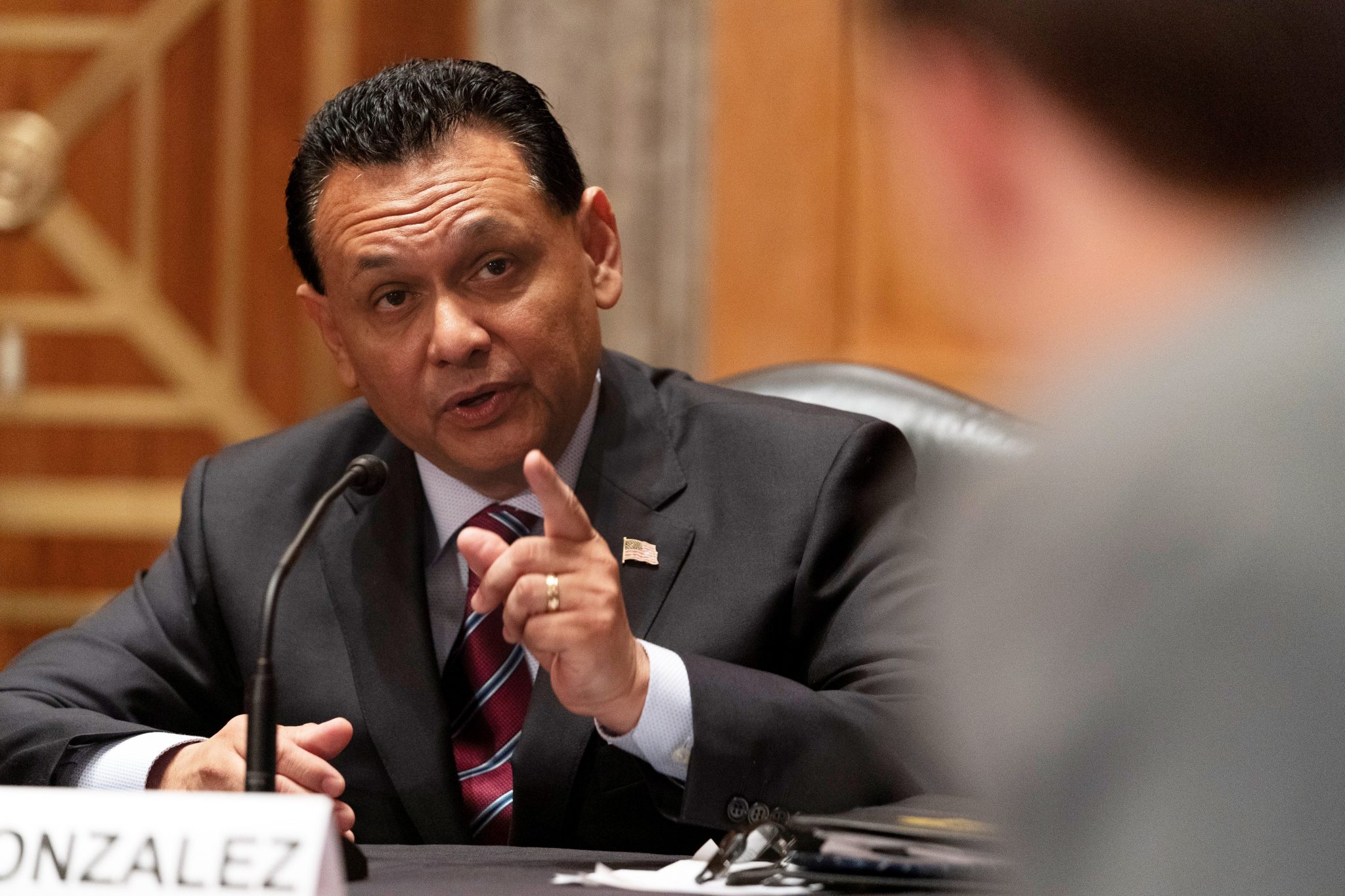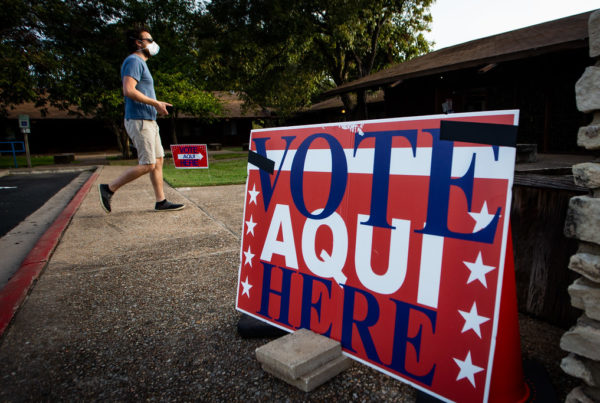President Joe Biden nominated Harris County Sheriff Ed Gonzalez to be his director of U.S. Immigration and Customs Enforcement back in April. The post is one of the most high-profile law enforcement jobs in the nation. But the Senate has yet to vote on Gonzalez’s confirmation. And if it doesn’t do so soon, the entire process will start over again from scratch.
The U.S. Senate Homeland Security and Governmental Affairs Committee held its confirmation hearing for Gonzalez to become director of ICE on July 15. Gonzalez walked a fine line as he introduced himself to the committee, speaking to his family heritage as the grandson of immigrants and his past critiques of ICE as it had been run under the Trump administration. He balanced that with his decades of experience as a Houston police officer and elected sheriff.
But while the questions from the majority Democrats were mostly cordial, questions from Republicans were more tense. Ranking Member Rob Portman of Ohio questioned Gonzalez about whether he would seek to end the 287(g) program nationwide. The program allows ICE to coordinate with local law enforcement in detaining people accused of immigration offenses.
Gonzalez’s decision to terminate the county’s participation in 287(g), and his past comments condemning the Trump-era ICE, make Republicans wary of his nomination. But his answer to Portman — that he did not intend to end the program — unnerved some progressive Democrats, even though a decision to end the program would likely be made at a level higher than Gonzalez’s.
“It’s a very difficult position to satisfy anyone, and I’m talking about the Democrats and the Republicans,” said Sarah Saldaña, the last person confirmed by the Senate as ICE director. Saldaña held the post under President Obama from 2014 to 2017.
“But particularly right now, obviously, the Republicans aren’t going to want anyone who is going to follow the president’s policies, which is kind of an extraordinary thing, because that’s why you’re appointed.”
The difficulty in satisfying even a handful of Republicans helps explain why Gonzalez is still awaiting a floor vote.
“In a 50-50 Senate, it means that the Democrats have to have all their votes in alignment and if they’re not picking up any Republican support, that means they have to have the vice president there in order to be able to go through their nominee, so there’s no margin of error,” said Max Stier, president and CEO of the nonprofit Partnership for Public Service, which studies the confirmation process.
Gonzalez is hardly alone in his vigil. “You have over 200 nominees that are in confirmation purgatory,” Stier said, noting that the average time for confirmation doubled between the presidencies of Ronald Reagan and Donald Trump and has only grown worse under Joe Biden. “So, this is generally an ugly process, and it hurts everybody.”
Case in point: ICE went the length of the entire Trump presidency without a Senate-confirmed director. Ali Noorani, president and CEO of the National Immigration Forum, said that made a huge difference in the way the agency worked.
“Since there was no Senate-confirmed director of Immigration and Customs Enforcement that was held accountable to some level by senators, you really had immigration enforcement being run by Stephen Miller and the staff that he put at DHS and at Department of Justice, so there was no process through which senators could question an appointee to Immigration and Customs Enforcement, and really ICE as an agency acted in a much more political manner as opposed to acting in the interests of the nation at large,” Noorani said.
Gonzalez’s nomination is on the Senate’s Executive Calendar. That means it could come up for a vote at any time. But that calendar is more than 40 pages long. Among the hundreds of other nominees on it is Robert Santos, who shared the witness table with Gonzalez at their confirmation hearing in July. The Senate Homeland Security and Governmental Affairs Committee approved both nominations in August.
While Gonzalez waits, he’s still serving as Harris County sheriff, and ongoing scandals at the county jail – including the alleged rape of a guard by an inmate – are becoming part of his record.
“I think it’s the responsibility of the senators to look at the whole picture,” Robin Foster, attorney for the Harris County Deputies’ Organization, told Houston Matters last week. “They have to look at the whole resume, and they have to look at, has he been able to do his job with the resources he’s been given, and will he be able to do the next job that he’s being asked to do?”
Meanwhile, the Senate is wrestling with a clogged agenda that includes the defense authorization bill and the president’s Build Back Better plan. If Gonzalez doesn’t come up for a vote before Congress adjourns for the year, the clock will reset on the entire process.
“Under Senate rules, all pending nominations will be returned to the president at the end of this first session of the Congress unless there is unanimous consent to hold over a nomination until the second session next year,” said Kristine Simmons, vice president for government affairs at the Partnership for Public Service. “So, unless the nominee has been confirmed by the end of the first session, it seems likely that the nomination would get returned, because all it takes is one senator to object to holding it over. Biden would have to resubmit the nomination in order for it to proceed.”
At that point, the window for the Senate to pass anything of significance will start shrinking fast. Next year is a congressional election year, and Republicans will be even less willing to grant Biden anything that could count as a victory.
“The Biden administration is going to make a decision eventually,” said Jeronimo Cortina, assistant professor of political science at the University of Houston. “If they think that this nomination is not going to go anywhere, they’re going to pull out the nomination and start looking for a new nominee.”














